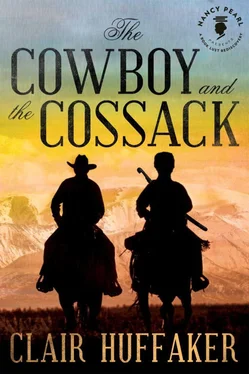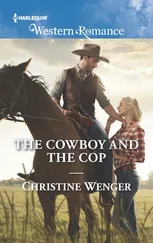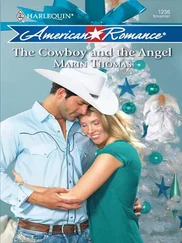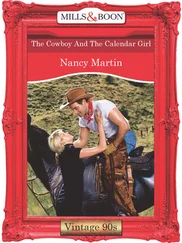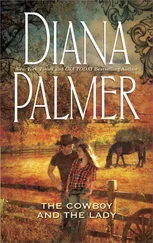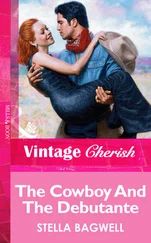Keats now stood slowly up, still holding what was left of the broken branch. “He was too paralyzed t’ be able t’ talk an’ warn me.” He hesitated a moment to get his voice under control. “God damn , what it must a’ taken t’ pull that saber an’ cut that rope.” He hesitated again, looking at the piece of birch in his hand as though he wondered what it was doing there. Then, finally, he opened his hand and dropped it. And then he said very quietly, “If he hadn’t cut that rope, I’d be layin’ right alongside ’im.”
Keats turned now and walked a little distance away by himself, into the nearby birches.
As I finally kneeled to spread my blanket over Bruk, Rostov said, “They probably poisoned the well because of losing that leader over there, whoever he was.” He took a long, slow breath. “All the people who were here. Just wasn’t enough killing for the Tartars.”
Shad looked off toward Old Keats. “Poisonin’ a well f’r whoever in the world might happen t’ come along next—” His words trailed off. And then he added in a dangerously quiet voice, “If it should ever come t’ pass that we go among ’em, that time, then an’ there, will be an interestin’ time.”
Neither Shad nor Rostov went any further in showing their deep feelings than those few words they had each spoken.
But soon after, Sergeant Nick came thundering at a full gallop down the hill and across the meadow toward us, and he damn well showed the way he felt. Tears streaming down his huge half-bearded and half-shaven face, he leaped from his horse and kneeled silently down to lift the blanket and look at Bruk, whose face had grown even blacker in death.
Then he stood, and Rostov spoke to him quietly and briefly in Russian.
Rostov must have mentioned the “important” Tartar who had died here, for when he finished speaking, Nick turned and strode to the wall where the one skeleton and two skulls were. He stood there a moment, his giant body almost shaking in outraged grief, and then he raised his right foot and stomped it down twice, his big, heavy boot crushing both skulls and grinding the gray-white powder into the ground.
Then, with the back of one sleeve, he wiped his tear-stained face and slowly returned toward us.
For myself, I’d been holding a lot back, just trying to keep up with Shad and Rostov. But now after what Nick had done, I turned to Shad, my voice partly breaking up, and said, “We got some black powder on the pack animals! Let’s get it an’ blow that goddamn sacred obo a’ theirs all t’ hell !”
Shad shook his head. “No.”
“Why not ?”
His voice tightened. “Because ya’ can’t kill a rock , Levi.”
Nick got to us and took a shovel and heavy hammer from his saddle. Then, methodically, he started to break down the well and fill it in upon itself, so that no one else would happen along and taste its deadly waters.
And finally Rostov said the last words spoken in that grim clearing among the white birch trees. “We’ll take Lieutenant Bruk far from here, and bury him in a high place.”
The next evening, at sunset, they laid Bruk to rest at the top of a high, gently sloping green hill. It was a simple, moving service, with Rostov saying only a few quiet words in Russian over the open grave. When a man is as loved as Bruk was, you don’t have to say a lot. And as Rostov spoke in Russian, us cowboys, without understanding, understood.
They laid Bruk’s saber at an angle across his chest. And then, before filling the grave in, there was one more thing to do. Bruk, like all the other cossacks, wore a thong around his neck that held a small leather pouch. Rostov had taken it off and he now opened the pouch and poured the handful of earth within it into his right hand. Holding his hand over the grave, he let the dirt fall slowly from it, so that the first earth was from Bruk’s home, Bakaskaya.
Then, silently, we began filling the grave.
On the walk back down to camp, bad as all of us Slash-Diamonders felt, I could still see that Old Keats was the hardest hit. And when we got there he just sat down by the fire, staring into it. Finally, I brought him a plate of beans, but he silently shook his head.
“Gotta eat,” I murmured. “Nothin’ more c’n be done.”
At last Keats wet his lips and whispered, “I just hate the idea a’ him spendin’ the rest of his life with that goddamn stick in his mouth.”
That was a hard line to answer, so all I did was silently nod a little.
And then Rostov came over carrying a box in his hands. It was Bruk’s handmade chess set. “He intended to give you this when the trip was over,” he told Keats in a quiet voice, “so—” He let his sentence end there, handed the chess set to Keats, and walked away.
Later that night, a few yards away from us, Ilya got out his balalaika and started to play it slowly and softly. Whatever the tune was, it was a little sad but very pretty.
And within a minute or two, another musical instrument joined quietly in, following Ilya’s lead on the balalaika. Sammy the Kid, on the far side of our campfire, had gotten his guitar and was playing just as softly as Ilya, the two of them speaking a beautiful common language that said everything with no words.
I couldn’t help but think back to the time we’d tried to drown the cossacks out with “De Camptown Races.” We’d come a long way, in a lot of ways, since then.
As the two of them continued playing, Old Keats moved closer to the fire. Where he was, he was sort of by himself, and he took out that little writing tablet of his, slowly thumbing through the worn pages and reading by the light of the fire, as though there was something special in the tablet that he wanted to find.
And in the middle of the night, when I got up to take my turn riding herd, Keats was still there by the fire. He had a piece of leather about eight inches square and he was working on it with a hot needle, slowly and patiently burning something into it. He was so intent on what he was doing that I didn’t bother him, but quietly saddled up Buck and rode out.
In the early light just before sunup, Mushy relieved me and I started toward camp.
Up in the distance, on the hill where we’d buried Bruk, there was one solitary man sitting motionless on his horse. I realized it was Old Keats, and hoping it wasn’t too forward of a thing to do, I turned Buck and rode up the hill to join him.
I came up slowly, and Keats wasn’t aware of me, so this time I gave him plenty of warning. From about twenty feet away I said in a low voice, “Keats?”
He turned and saw that it was me. And then, after a moment, he said, “It’s all right, Levi.”
I rode on over with the idea of just sitting near him for a minute and kind of sharing his feelings in some little way. So it wasn’t until I pulled up beside him that I realized he was doing a whole lot more for me than I was for him. For the first and only time I ever knew about, he was quietly letting someone else read a thing he had written. The words that he’d spent the night burning into that leather, which he’d nailed onto Lieutenant Bruk’s small cross.
The words Old Keats had written were
i am i
and you are you
and we are both
each other too
Finally, after a long, silent time, we turned and rode slowly back down the hill.
FOR EIGHT long days we moved on higher into the rising broken country ahead, approaching the tall, ragged line of peaks that capped the range of mountains before us.
But even with the land growing hard and mean to climb we weren’t ever blocked or trapped along the way. Riding far point and scouting our route, Rostov led us wisely, so that the herd was never hung up in terrain too rough to get up and over. Somehow there was always a high meadow that joined up with an easy, gently sloping valley or a wide canyon bottom where we could gain higher ground ahead, even though we might be surrounded on both sides by sheer cliffs or by wicked, impassable levels of jagged, leg-breaking rocks.
Читать дальше
